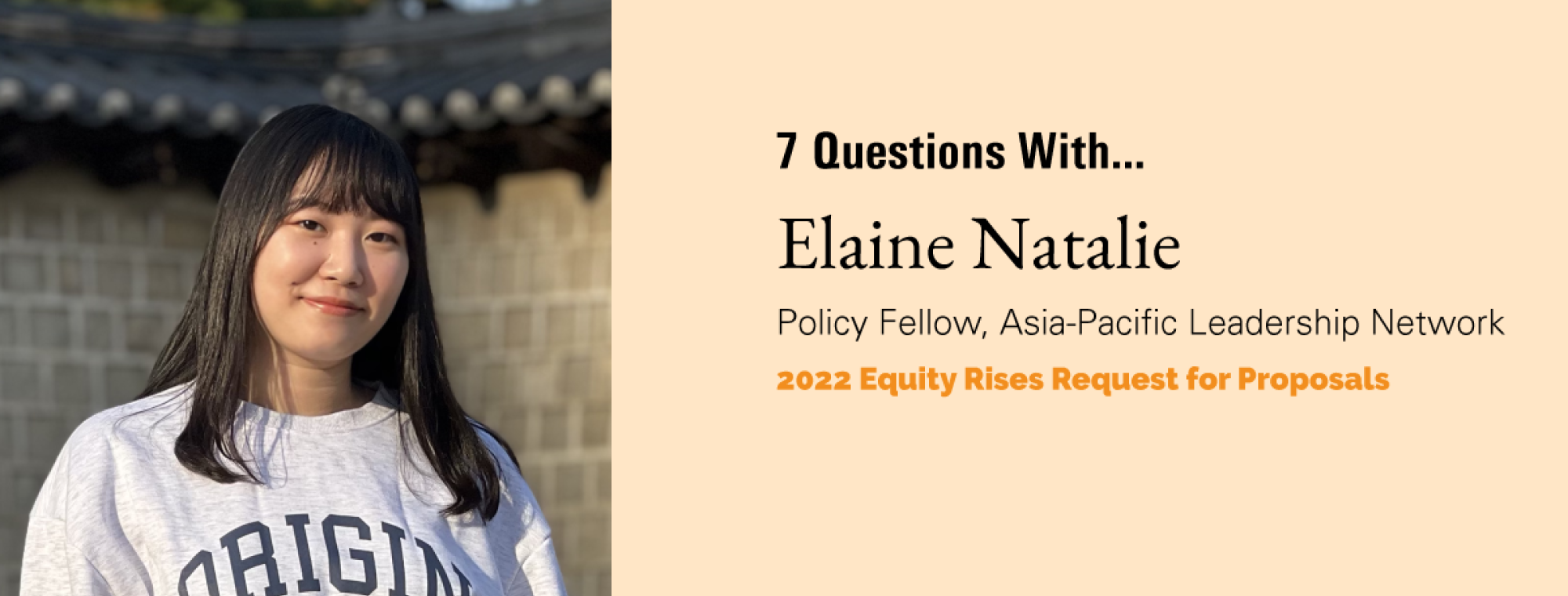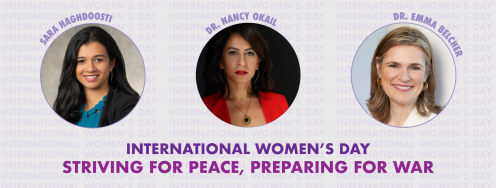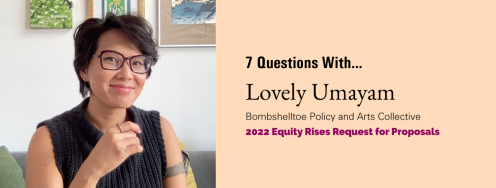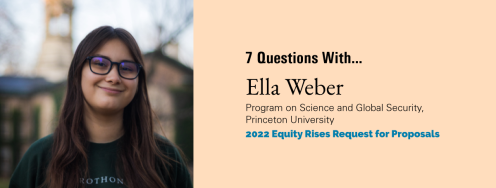Elaine Natalie is a Policy Fellow at the Asia-Pacific Leadership Network (APLN) and a Master’s student at Seoul National University's Graduate School of International Studies, majoring in International Cooperation. This is part of a series of interviews in which you can get to know the grants given under the 2022 Equity Rises Request for Proposals and the people behind all the work.
Question 1: Tell us about your work! What kind of goals do you have? What are you excited about?
My work is focused on addressing regional security challenges that have global impacts, particularly the reduction and elimination of nuclear weapons risks. At the Asia-Pacific Leadership Network (APLN) I’m fortunate to be able to work on a variety of issues, ranging from the Nuclear Non-proliferation Treaty (NPT) and conflict on the Korean Peninsula to nuclear justice in the Pacific Islands and the intersection of existential threats such as nuclear weapons and climate change.
I feel like my goals are everchanging; I’m relatively new to the nuclear policy field, so I get really excited about every new project that I get to be involved in. But something that I’ve always been interested in and found important is the humanitarian impact of nuclear weapons, which often gets disregarded in most security-related discussions around nuclear weapons. I try to highlight the inhumane consequences of nuclear weapons in the work that I do. Ultimately, of course, I would like my work to bring the world a little closer to the complete elimination of nuclear weapons.
Question 2: What developments in the Asia-Pacific region do you think people should be paying more attention to?
The legacy of nuclear testing and the continued fight for nuclear justice in places including the Pacific Islands. From 1946 to 1996, over 300 nuclear tests were conducted in the Pacific. The radioactive fallout from these tests have left long-lasting and significant impacts on the well-being of the people and the ecosystems of the region. Pacific Islanders continue to grapple with permanent displacement, endless health concerns, and contaminated environment and food sources today. We must realize that the international community has a shared responsibility in utilizing the available tools and resources to address the human and environmental security challenges faced by the Pacific Islands.
APLN launched a project earlier this year on “Nuclear Disarmament and the Anthropocene: Voices from Pacific Island Countries.” Together with other individuals, international organizations, and civil society groups across the Pacific Islands, we hope to highlight the inequities and injustices associated with nuclear weapons policies and practices that exacerbate existential risks, including climate change. We held a creative competition on “Nuclear Weapons and the Climate Crisis” a couple months ago and recently announced the winners. The winning pieces by Luisa Tuilau, Bedi Racule, Sharon Kumar, Mere Tuilau, and Dorell Ben were both heartbreaking and uplifting, and really speak to the impact that climate change and contemporary nuclear weapons policies have had, and continue to have, on the Pacific Islands. Do check them out!
Question 3: How do you think including more diverse voices will affect your work and the nuclear policy field at large?
The nuclear policy community greatly suffers from a lack of diversity, especially in government and academia. For instance, less than a third of all arms control, non-proliferation, and disarmament delegates are women, and they rarely occupy positions of influence. This problem is even worse in the Asia-Pacific, where countries tend to score poorly on female representation. Nuclear policy has long been dominated by a core group of “usual suspects” that have mainly focused on achieving security through weapons and military capabilities. Including diverse voices will inject fresh thinking into entrenched policy debates and generate new ideas on how to deal with various security challenges. It will also highlight the power dynamics and power imbalances ingrained in current nuclear policy, and ensure that the voices of people impacted by nuclear policy are heard in the policymaking process.
Question 4: What's the most interesting or memorable project you've done in your career?
One of the most memorable projects I’ve done is one on how Asia-Pacific countries can advance the NPT's goals. We organized a workshop earlier this year in advance of the Tenth NPT Review Conference to discuss the challenges and opportunities for Asia-Pacific countries to strengthen the NPT regime. In addition to the content of the workshop itself, the experience of meeting and exchanging ideas with senior experts and officials in-person was exciting and eye-opening for me. I joined APLN and entered the nuclear policy field right as the pandemic started. Every project and event up until this workshop had been conducted virtually. Through organizing and attending this workshop, I was able to see the importance of face-to-face meetings and how they allow us to build relationships with one another, even those with differing opinions. It was really encouraging to also meet a number of early-career participants at this workshop who are working towards the same non-proliferation and disarmament goals as I am.
Question 5: What do you think the nuclear policy field needs right now?
More diverse voices and a push to improve public education on arms control and disarmament!
Question 6: What’s the best book you’ve read recently?
Not sure if I would label this the best, but I recently quite enjoyed reading “Convenience Store Woman” by Sayaka Murata. It’s funny and cute in a strange sort of way and deals with themes of societal pressures, especially the understanding of what it means to be “normal.”
Question 7: What would you say is the best way to get involved if you’re new to the nuclear field?
The learning curve in the nuclear field is quite steep, so engaging with senior experts might be intimidating if you’re new – it certainly was (and still sometimes is) for me. So I think joining events made especially for “young professionals” or “emerging voices” in the field is a good way to get started since there’s less pressure of knowing what to say and everyone else is probably just as clueless as you are. It’s a good way to build relationships while learning more about key issues in the field. Keeping up with relevant current events also helps a lot (subscribe to one of the many nuclear policy newsletters, like this one).
7 questions with Elaine Natalie @elainenataliee




